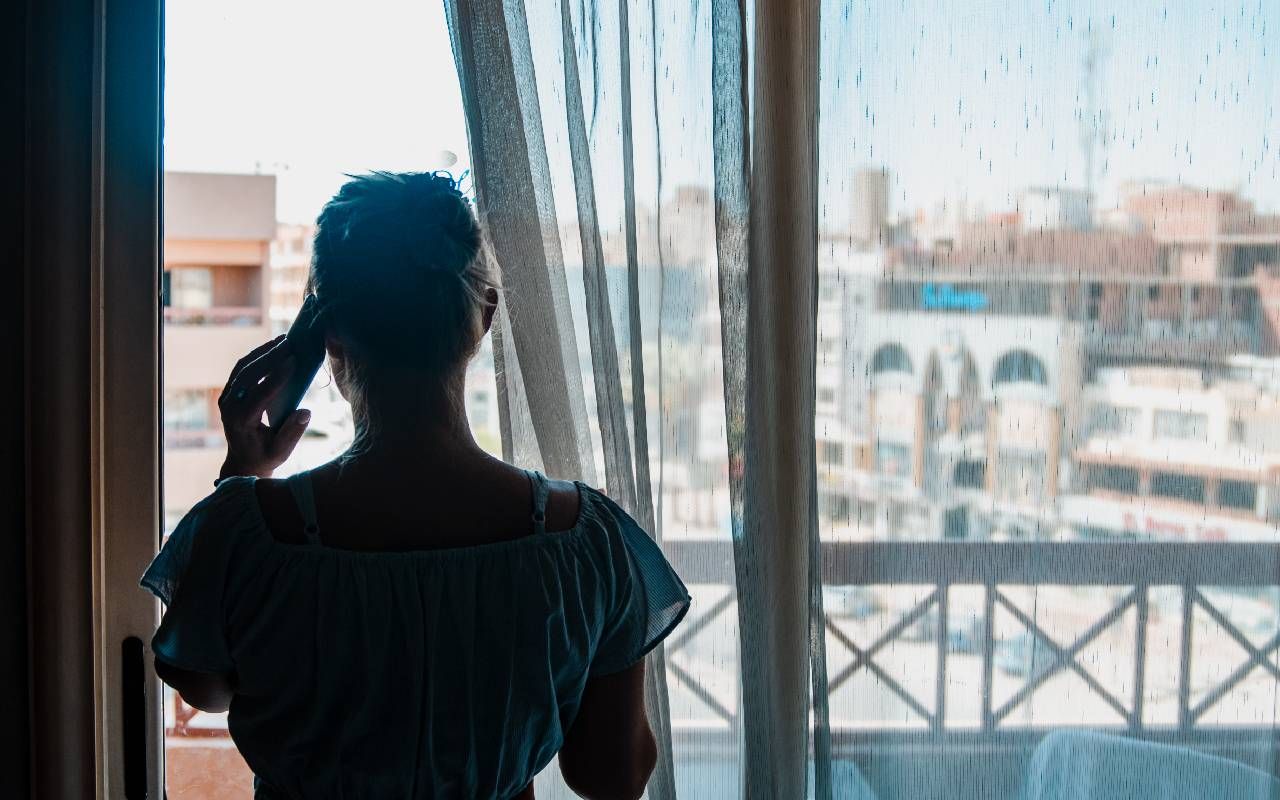A Patient Advocate Helped Save My Mother-In-Law's Life
When my mother-in-law suffered severe complications from 'a simple surgery,' a private patient advocate provided a lifeline
In 2019, my mother-in-law Andy — still young and healthy at 72 — had cataract surgery. Afterward, she complained of pain and blurriness, but her ophthalmologist insisted all was well and encouraged her to give her recovery more time.

A week later, just as my husband Jared and I had finished dinner in Los Angeles, Andy called from North Carolina and said, "I went to see my cataract doctor and he had a retina specialist there who sent me to get an MRI. Now they're telling me I've got a tumor in my brain."
A Blaring Siren in the Distance
Like a blaring siren in the distance, this call eventually makes its way to all of us. It's the call most adult children fail to prepare for despite an aging parent's inevitable frailties. We were no different. There'd been no practice drills, no conversations about how we'd handle a situation like this, no brain tumor survival kit stashed in a closet.
It's the call most adult children fail to prepare for despite an aging parent's inevitable frailties. We were no different.
We knew Andy's vision had troubled her, but she'd never mentioned dizziness or headaches — symptoms often associated with brain tumors. Andy, a tall blonde who'd done some modeling in her youth, had recently broken up with her partner and reported feeling fit due to a new exercise regimen.
Jared and I tried not to panic and immediately urged his mom to see a specialist. The next day, a neurologist informed Andy that she had a pituitary tumor, and, much to everyone's relief, it was benign. Still, the growth needed to be removed to prevent further damage to her vision.
A flurry of phone calls ensued with Jared's brother and sister-in-law. Since all four of us kids live in Los Angeles — a city with several well-reputed medical facilities — we opted to bring Andy to California to tag-team her care.
The Diagnosis
Andy arrived in town and met with a highly regarded neurosurgeon. A silver-haired man in a crisp lab coat, the doctor explained that her growth wasn't a pituitary tumor but rather a meningioma — the most common type of benign brain tumor affecting 170,000 people each year — and it was pressing against her optic nerve.
Forty-five minutes flew by as he answered questions and promised the surgery would be simple and Andy's recovery speedy. His acumen instilled confidence in us that we believed every word. Alas, things did not go as planned.
His acumen instilled confidence in us that we believed every word. Alas, things did not go as planned.
The Complications
"She won't wake up," Jared's brother, Josiah, texted from the hospital recovery room after the surgery. "Is the doctor there?" Jared typed.
"Nurses are here. They're calling Mom's name and patting her arm."
Jared and I hovered by the phone, awaiting updates.
Later, a neurology nurse called and said Andy might be having a bad reaction to anesthesia, or it might be hydrocephalus — swelling in the brain. They moved her to the ICU and asked for permission to install a spinal drain to release any excess Cerebrospinal fluid (CSF) to avoid brain swelling. While Jared gave the go-ahead, I kept thinking, where is her doctor?
Within twenty-four hours, Andy was out of intensive care; however, she wasn't well. Plagued with confusion, she didn't remember that her mother had died years before.
During our visits, she'd fall asleep mid-sentence and thought Reagan was president instead of Trump. We voiced our concerns to nurses only to be told Andy had been up all night, hence her exhaustion.
Feeling Powerless
My gut told me something was wrong, but I couldn't prove it without a medical degree. I felt powerless and worried we were failing Andy. Meanwhile, our surgeon all but vanished.
Unable to reach him by phone, we couldn't ask him why Andy thought she was in Boston, and her right eye drooped like a boxer's after a knock-out round. Or why the initial two-to-three-day hospital stint he'd estimated turned into a two-week stay and two more weeks at rehab.
We learned about patient's rights — a policy that guarantees every patient has a say in their care and hospital discharge plan.
Once spry, Andy now suffered from constant confusion, nausea, dizziness, lethargy, double-vision and headaches. She required a walker to remain steady. Upon release from rehab, the occupational therapist said Andy could never live on her own again.
Devastated by the news, we wondered if the surgery had been a mistake and had no idea how we'd afford or manage her long-term care.
Out of Our Depth As Caretakers
In our tiny apartment, we set up the guest room for Andy, put bars on the toilet, and installed a bed alarm. I'd race in to ensure she hadn't fallen when she awoke at all hours.
Sluggish and disoriented, she refused to leave her bed in the mornings. She scratched at her arms and legs nonstop, convinced she had glass shards under her skin. Four days later, Andy's confusion worsened, and she couldn't keep food down or stand without falling.
We rushed to the ER, and a CT scan revealed she had hydrocephalus. Her neurosurgeon recommended installing a ventriculoperitoneal (VP) shunt in her skull to move fluid down her neck and into her abdomen to be reabsorbed by the body. At that point, I was scared to put Andy through another surgery.
We were out of our depth and desperate for help to navigate this medical odyssey. I confided in a friend who recommended we hire Sandy, a private patient advocate.
Our Patient Advocate Led the Way
With over thirty years of experience in the medical industry, Sandy helps guide patients and their families through the medical system to ensure the best care.
Prices range from $100 to $500 an hour for private patient advocates, and some hospitals offer access to patient support resources for free, though it can be challenging to secure. Sandy required a $2,000 retainer to cover ten hours — a significant expense for sure, but we agreed it was worth it to keep Andy safe.
Once engaged, Sandy shared that two of her clients had shown significant improvements following the insertion of a VP shunt. That allayed our fears, and Jared okayed the procedure. She then familiarized us with hospital bureaucracy, describing the experience as "being dropped in another country where you don't speak the language."
We learned about patient's rights — a policy that guarantees every patient has a say in their care and hospital discharge plan. Sandy said hospitals typically rush patients out the door to free up beds, but patient rights allow for push-back on the discharge plan. That info would soon come in handy.
Post-surgery, Sandy accompanied us to the hospital to visit Andy, who enthusiastically greeted us from her bed, happily devouring a bowl of soup. She seemed like her old self and handled the spoon quickly, whereas, in the past, her double vision hindered the use of utensils.
A nurse arrived, and Sandy got to work, asking for copies of the CT scan, inquiring about Andy's lab reports, and requesting a spirometer — a breathing apparatus to prevent pneumonia. When the case manager — the person tasked with rushing patients out the door — popped in, Sandy rattled off a list of wellness conditions that needed to be met before Andy could be released.
Watching her work and witnessing the staff taking her seriously was exhilarating.
Watching her work and witnessing the staff taking her seriously was exhilarating. Miraculously, our elusive surgeon appeared next and remarked on Andy's improved condition. "I think she's been suffering from hydrocephalus this entire time," he said, eyes cast downward. "I probably should've installed the shunt earlier, but you never want to put the patient through an unnecessary procedure."
It couldn't have been easy for him to admit he'd made an error in judgment, and though I appreciated his honesty, I wished he'd leveled with us from the start about potential risks. Maybe we would've been better prepared and addressed Andy's complications sooner.
With prodding from Sandy, the doctor agreed it would be best to keep Andy under observation for another week. The following afternoon, however, the case manager called to alert us that they'd be releasing Andy immediately.
Stunned and frustrated, I knew, thanks to Sandy, that I had the right to refuse that timeline. I insisted the case manager speak to Andy's surgeon, and after two more tense conversations, the release date was delayed. I hung up, exhilarated by this newfound sense of empowerment.
A Happy Ending
Andy spent another four weeks in the hospital and rehab. This time, her recovery proved crisis-free. It took several months for her to regain her strength, and though her peripheral vision is diminished from the tumor pressure, she's defied her prognosis.
She lives independently in LA today, and we see her often. And now, thanks to Sandy's guidance, Andy can see us, too.


